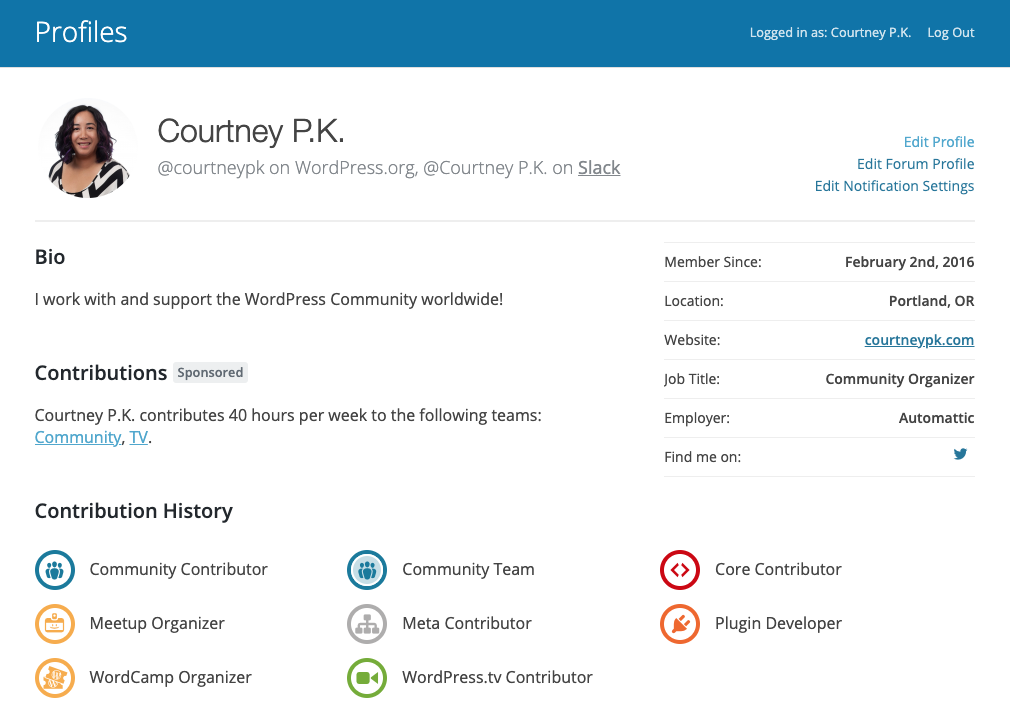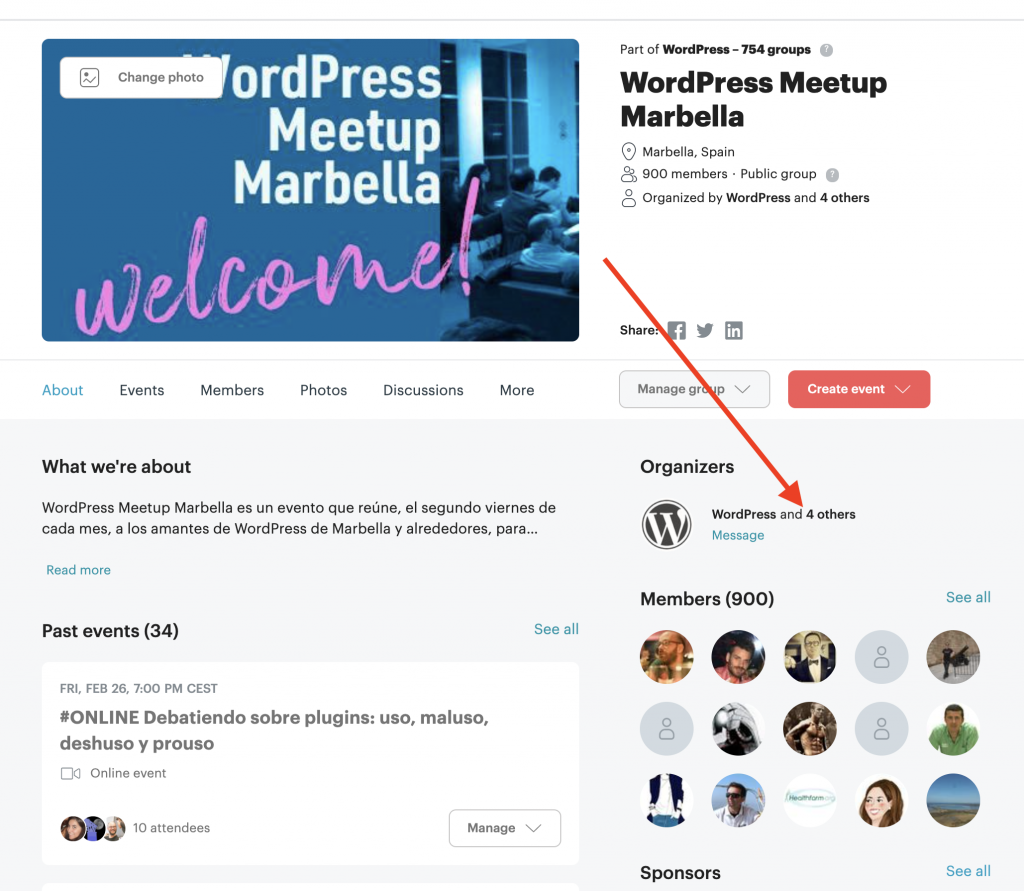If there’s a question you’d like to see answered or a topic you’d like to see discussed, please share it in the comments or email me at [email protected] with the subject line Tuesday Trainings. Now onto this week’s topic.
Disclaimer: I’m not a mental health professional, I’m just a person who does a lot of emotional labor and cares deeply about the emotions and mental well being of others. I’ll do my best to share what is working for me and I hope you’ll share what works for you.
This week’s question: What’s the deal with self care?
Let me jump into this one a little differently. Usually these Tuesday Training posts are aimed at anyone in the WordPress community that is looking for the information I’m serving up, but this week’s post is something else. Many of the topics we bring up in this series of posts are near and dear to my heart, but this one especially is important to me. So while I intend this information for anyone who needs to read it, this post in particular is for the organizers out there. The meetup Meetup groups are locally-organized groups that get together for face-to-face events on a regular basis (commonly once a month). Learn more about Meetups in our Meetup Organizer Handbook. organizers, the WordCamp WordCamps are casual, locally-organized conferences covering everything related to WordPress. They're one of the places where the WordPress community comes together to teach one another what they’ve learned throughout the year and share the joy. Learn more. organizers, the community organizers. This goes out to the people who activate teams of volunteers, who make our little corner of the internet a safer and more inclusive space.
This goes out to those who tirelessly give of themselves with active listening and engagement so that we can get to the root of issues when they arise or stop them in their path–before most people even notice.
So what’s the deal with self care? Self care is important. I’m not just talking about getting a haircut, facial, or a manicure. Those are all forms of self care, sure. But I’m talking about the kind of self care that fills you up and fortifies you so you can continue to be the best you that you can be while supporting others in being their best selves. All of that allows us to engage in and build this project with authenticity and respect for one another.
In community work we take care of other people. In order to be able to take care of other people we first must be taking care of ourselves. The clearest example I can share with you is that you can’t pour from an empty cup. Which means if you have nothing left to give, you can’t give it. That way leads to burnout. Exhaustion. Dissatisfaction. And sometimes calling it quits altogether.
I don’t want that for any of you. I want you to continue to embrace, improve, grow, and uplift the WordPress community in the special way that you each do. So let’s talk about how to make sure our cup isn’t empty.
Say no mindfully
Be aware of your bandwidth and what you have to give; say no to taking on additional work when it isn’t the right thing for you. I never want to say no to helping others, but it has helped me to reframe it by reminding myself that when I say yes to one thing, it means there are other things I’m going to have no choice to say no to down the road.
Ask yourself: In saying “no” to one thing, what am I saying “yes” to? Or vice versa.
For more on the importance of saying no, check out this past Tuesday Training post.
Ask yourself what you would tell someone else
I’m hard on myself sometimes. And that’s a choice I make. But sometimes I have to step back and look at everything on my plate, both professionally and personally, and realize that there’s too much.
If I have a headache and a day full of meetings, it is my inclination to just find a way to power through. But if any of my teammates or mentees let me know that the same was happening with them, I would insist immediately that they take some time to rest and feel better. A headache or being physically exhausted or ill is an easy example, but it’s just as important to give yourself that break if you are upset, stressed, anxious, or just plain overwhelmed.
Check in with yourself: How are you today? What would you tell a friend, teammate, or colleague?
Give yourself the same grace you would give to someone else you care about.
Do something nice for yourself
It might be a haircut and a nice lunch out, or it might just be finding time to go on a walk, draw a picture, or straighten up your surroundings so you feel better about them and yourself. It might be sitting in a park watching nature. It might be drinking one more glass of water a day. Find something that you need to do for yourself that will help you feel better, or happier or less stressed and do it. Little things can count here just as much as big things. It might not necessarily be something you want to do. But maybe it’s something you should do. Like taking a walk, getting some exercise, having a side of veggies with lunch, or starting your day with a healthy breakfast.
Think on it: What’s one kindness you can give yourself today?
Say something
People don’t always notice when others are overwhelmed, overworked, or burned out. Some folks handle their stress and workload silently and seem to carry it with such grace that others may not notice that they’re under stress. “Holding up” to stress doesn’t mean you should have more of it, it just means you’re good at fooling people into thinking the stress isn’t there. If you’re struggling say something. Ask others in the community to take over responsibilities that are causing the issues or aren’t right for you. Let folks know that you need a break. Ask for help getting some space or solving a problem that’s standing in your way.
Delegate: What is something on your plate that you might share with someone else to lighten the load?
Wrapping up
Taking care of oneself is absolutely a critical component of being able to take care of others and build a healthy community. I hope you all keep that in mind in the days, weeks, months, and years to come. Each of us here is critical to the success of this project, and self care is critical to surviving and succeeding over all.
If you’d like to share what helps you, I’d welcome your thoughts in the comments below. And as always if you have any questions or topics you’d like to see addressed in this space let me know in the comments or by emailing [email protected]
#tuesdaytrainings






